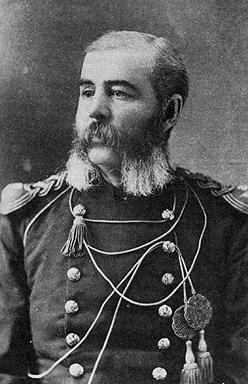Fightin' Josè
By Perry Gil S Mallari
The Manila Times
12 June 2008
He was a doctor, a novelist, a poet, a sculptor, a painter and a lothario. He was also a swordsman, deadly with both rapier and arnis sticks; a highly regarded pistol marksman; a body builder with experience in wrestling and judo; a freedom fighter and a wanted man. Our National Hero Dr. Jose Rizal, hailed, as "The Pride of the Malay Race" was a Renaissance man. Yes, Rizal honed his brawn and his blade as much as he did his wit and his word.
Rizal did not become a superb physical specimen overnight. He was frail and sickly as a child. This probably prompted him to study the art of buno (wrestling) from his uncle Manuel to strengthen his body. This skill he once used to defeat a bully in class. Rizal's love for the combative arts stayed with him until he became an adult.
At 18-year-old, in a letter to Enrique Lete, dated November 27, 1879, he says, "My hands are shaking because I have just had a fencing bout; you know I want to be a swordsman."
As a student in Madrid, he practiced fencing and pistol shooting with the Paterno brothers namely Pedro, Maximino and Antonio. Rizal was a pretty good shot as indicated by his correspondence to Antonio Luna that narrates, "Speaking of shooting, I am sending you a target containing 10 bullet holes; it was seven and a half meters from me. At twenty-five meters I can put all my shots into a twenty-centimeter target."
Rizal had also dedicated himself to weightlifting and bodybuilding. While he was in Germany, Dr. Maximo Viola recalled Rizal lifting great weights under an unaccustomed diet in an effort to defeat the best weightlifter of one gymnasium. Unorthodox his approach maybe, Rizal succeeded in the said goal.
In his brief sojourn in Japan in 1888, he witnessed and learned the art of judo—newly created at that time by martial arts master and educator Dr. Jigoro Kano. Rizal later taught judo to the members of the Kidlat [Lightning] Club, which he founded in Paris. In London, Rizal trained in boxing with the sons of his friend Dr. Reinhold Rost.
Rizal's patriotism was evident even in his study of martial arts. While being adept in Western swordsmanship and pistol shooting, he made sure that he was also an expert in arnis, the indigenous fighting art of his Motherland. Arnis, which uses weaponry training as a primary mode of instruction was among the subjects Rizal taught to the boys of Dapitan during his last days.
Rizal nearly fought three real duels in his lifetime. The first was when he challenged Antonio Luna for uttering unsavory remarks against his love interest Nellie Boustead. The second was when he challenged his bitter enemy of the pen, the Spanish scholar Wenceslao E. Retana for writing a malicious article stating that his family was ejected from their lands in Calamba for not paying the rent. The third was when he challenged the Frenchman Juan Lardet for accusing him of cheating in a business deal in Dapitan.
His duel with Luna was aborted when the latter apologized and through the intervention of his compatriots in Madrid. Retana, however, simply backed off after learning of Rizal's fighting prowess. The Spaniard later became an avid biographer of the national hero. Like Retana, Lardet retracted his allegation and declined the challenge after being advised by Captain Ricardo Carcinero, the Spanish commandant of Dapitan, who knew well of Rizal's fighting abilities.
It was perhaps Rizal's deep knowledge of the martial arts that prompted him to exercise extreme prudence in plotting the steps of the Philippine Revolution. This was evident in his dialogue with Dr. Pio Valenzuela, an envoy of Andres Bonifacio's Katipunan that says, "I will never lead a disorderly revolution and one which has no probability of success because I do not want to burden my conscience with an imprudent and useless spilling of blood; but whoever leads a revolution in the Philippines will have me at his side."
Jose Rizal was indeed the personification of the term "brain and brawn," a fighting, thinking man.


